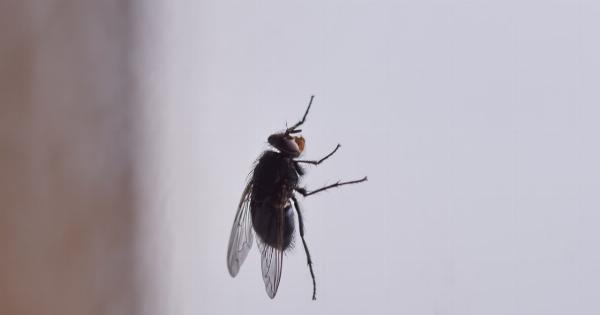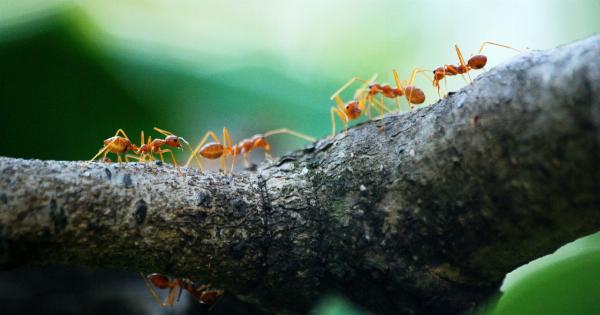Ants are one of the most common household pests in the world. For many people, these tiny intruders are a constant annoyance. Not only can they damage your property and contaminate your food, but they can also cause painful bites and stings.
Fortunately, with a bit of knowledge and some effort, it is possible to get rid of ants and keep them from returning.
Identify the Type of Ant
Before you can start tackling your ant problem, you need to know what kind of ants you are dealing with. Different ant species have different habits and preferences when it comes to food and nesting.
Some ants prefer sweet foods, while others are attracted to protein-rich sources. Some ants prefer dry, warm areas, while others thrive in moist or humid environments.
A quick online search should help you identify the type of ants in your home. Once you know what you’re dealing with, you can choose the most appropriate control methods.
Use Baits
Baits are a popular and effective way to control ants. Ant baits work by using a slow-acting poison that the ants carry back to their nest, where it can kill the entire colony. Baits come in a variety of forms, including liquid, gel, and solid.
Some baits are designed to attract ants that prefer sweet foods, while others are designed for protein-loving ants.
When using ant baits, it’s important to place them in areas where you have seen ant activity.
You should also avoid using pesticides or other pest control products around the bait, as this can interfere with the ants’ ability to find and carry it back to their nest.
Seal Entry Points
Ants can enter your home through even the tiniest cracks and gaps. To prevent ants from entering, you need to seal off any potential entry points.
This can include sealing gaps around windows and doors, as well as repairing any cracks in your foundation or walls.
You can use caulk or silicone sealant to seal off small gaps. For larger gaps, you may need to use expanding foam or wire mesh to fill the hole before sealing it with caulk.
You should also check for gaps around pipes or electrical outlets, as these can be common entry points for ants.
Clean Up Spills and Crumbs
Ants are attracted to food and water. To keep them from infesting your home, you need to make sure you don’t leave any food or water out in the open. This means cleaning up spills and crumbs as soon as they happen.
You should also store your food in airtight containers and clean your kitchen regularly to prevent crumbs and food scraps from accumulating. Make sure you check under appliances and in other hard-to-reach areas where crumbs may accumulate.
Use Ant Repellents
There are a variety of natural and chemical ant repellents that can be effective at keeping ants away from your home. Some common natural repellents include cinnamon, vinegar, and lemon juice.
These substances can be used to create a barrier around your home or to treat areas where you have seen ant activity.
If natural repellents don’t work, you can try using chemical repellents. These products contain chemicals that are designed to repel ants without killing them.
When using chemical repellents, it’s important to follow the instructions carefully and to avoid coming into contact with the product.
Eliminate Standing Water
Ants need water to survive, so eliminating standing water can help reduce their numbers. This means fixing any leaks in your plumbing and emptying any containers that have collected water, such as plant saucers or bird baths.
You should also make sure your gutters and downspouts are working properly to divert water away from your home. If you have a pond or pool, you should regularly treat it with chemicals to keep the water clean and free of algae, which can attract ants.
Try Diatomaceous Earth
Diatomaceous earth is a natural substance that can be effective at killing ants. This powdery substance is made from the fossilized remains of tiny aquatic organisms.
When ants come into contact with diatomaceous earth, it damages their exoskeletons and dehydrates them, ultimately killing them.
To use diatomaceous earth, sprinkle it around areas where you have seen ant activity. You can also use it around the perimeter of your home to create a barrier that ants won’t cross.
Just be sure to wear gloves and a mask when handling diatomaceous earth, as it can irritate the skin and lungs.
Call in the Professionals
If your ant problem is particularly severe or you are unable to control it on your own, it may be time to call in a professional pest control service.
Pest control professionals have access to a variety of tools and products that can be effective at eliminating ants.
When choosing a pest control service, make sure you choose a reputable company that uses safe and effective products.
You should also ask about the company’s methods for treating ant infestations and what steps they take to prevent future infestations.
Stay Vigilant
Even if you are able to eliminate your ant problem, you still need to stay vigilant to prevent future infestations.
This means continuing to seal entry points, keeping your home clean and free of food scraps, and using natural or chemical repellents as needed.
By following these tips, you can keep your home ant-free and reduce the risk of property damage, food contamination, and painful bites and stings.





























